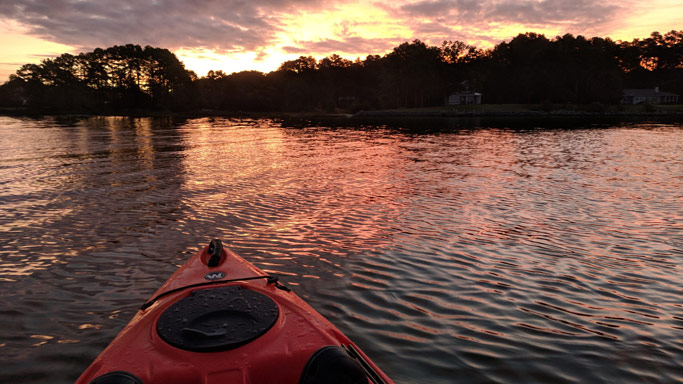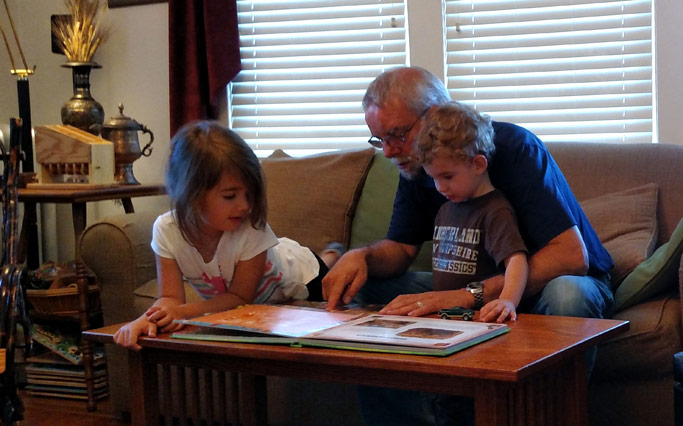
Finding the Sabbath in sabbatical
by Jon Trotter
For many years I’ve been blessed to serve in congregations that give priority to offering sabbaticals to its pastors. Yes, Mennonite Church USA congregations get a not-so-subtle nudge from the denomination. A recommended sabbatical policy is written into pastoral support guidelines. Congregations may choose whether to follow the guidelines, and not all do.
Even in congregations like Park View Mennonite Church, with a long history of providing sabbaticals, not everyone fully understands the nature of a sabbatical when it rolls around again. Occasionally, we pastors need to gently correct someone who refers to it as a “vacation.” Or we hear comments like, “I wish I could get a sabbatical from my job” (a valid sentiment, but not a very helpful thing to say to your pastor)!
Park View strongly encourages its pastors to take a three-month sabbatical every four years, per denominational guidelines. Our congregation considers it essential to the well-being of its pastors, and an investment in future years of fruitful ministry. As such, the congregation asks us to submit a plan for our sabbatical, and Council and Elders can give feedback or suggestions on how we choose to use the time. We often get useful suggestions, which we take to heart.

During Phil Kniss’ sabbatical, he had the opportunity to reflect and recreate in nature. Here he is kayaking at sunrise on the Great Wicomico River near Reedville, Virginia. Photo courtesy of Phil Kniss
In my 21 years of ministry at Park View, I have used sabbaticals to travel to Tanzania and Ethiopia to learn from our Mennonite church family there, to work on pursuing a Doctor of Ministry degree, to travel to Israel-Palestine on a learning/serving trip, to spend time with a sister church in New Orleans, to take silent prayer retreats, to spend time visiting family, to worship in other churches in our community, and to generally be on a slower pace, with more time to read, reflect, and recreate.
Beyond all these various purposeful activities we might engage in during a sabbatical, we must not forget the clear connection between sabbatical and Sabbath, even in the word itself. Walter Brueggemann’s two-word definition of Sabbath is “work stoppage.” Simply disconnecting from our daily duties and deadlines is an essential part of the practice of sabbatical and Sabbath. We live in a world that defines our worth in terms of activity and productivity. To stop work, and to rest, is to trust in God’s gift of “enough.” To skip sabbaticals and Sabbaths, and go right on with our frenzied pace, is to buy into the “myth of scarcity.” It is to reject God’s gifts and God’s promise, and to believe the lie that it’s all up to me.

Phil Kniss spends time with two of his grandchildren during his sabbatical. Photo courtesy of Phil Kniss
The sabbatical I took this year (May, June, and July) was spent moving back and forth between meaningful work and rest. My work was different than normal, and was energizing. It involved some physical labor, as I worked on a project at our house, as well as some church-related writing and stimulating conversations at the conference and denominational level. My ability to step away from responsibilities at Park View, and trust other leaders to keep us moving forward, enabled me to do a modest amount of other work, which my normal work schedule did not permit. And when I was not working, I was on retreat, or reading, or spending quality time with our children and grandchildren.
The sabbatical ended in a way I had not planned on. After my sabbatical began, I learned I needed my aortic valve surgically replaced within a few months’ time. So with apologies to staff and the congregation, I extended my time away by a couple more weeks, as I took some medical leave to recover from heart surgery. Thankfully, the recovery was rapid, and I was easing back into some congregational responsibilities ten days after my operation.
Now that I’m fully “back in the saddle,” I know that Sabbath continues to be a necessary part of my life, even between sabbaticals. One of the self-care promises I made to myself before my surgery, was that after I successfully recovered, I would buy a kayak and go paddling on a regular basis. I love being surrounded by natural beauty. I love being on the water. I love a good physical workout. I love getting away from the office and into quiet spaces. Kayaking does all those things, and has been a great new adventure and gift. So in the coming years, as I keep up the pace that daily pastoral ministry demands, I also plan to keep paddling, at a more leisurely pace.
